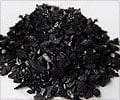Carbon monoxide, a toxic gas that is also a by-product of the degradation of heme, has a crucial role in keeping the body's internal clock ticking.

- The body's carbon monoxide metabolism is closely linked to the body's circadian clock.
- Rhythmic heme degradation, which generates the signaling molecule carbon monoxide, is required for normal circadian rhythms as well as circadian metabolic outputs.
- Genetic depletion of CO-producing heme oxygenases abrogates normal daily cycles in mammalian cells.
Under the leadership of Prof. Dr. Achim Kramer, Head of the Chronobiology Research Unit at Charité's Institute for Medical Immunology, a team of researchers has been studying the role of heme (the iron-containing red pigment in red blood cells) for the body's circadian rhythms. Heme is a complex molecule that is part of numerous other proteins and acts as a metabolic sensor.
"Our research has shown that carbon monoxide, a toxic gas that is also a by-product of the degradation of heme, has a crucial role in keeping the body's internal clock ticking as it should," explains Prof. Kramer. He adds, "The production of this molecule inside the cells of the liver can be disrupted through pharmacological inhibition, or by genetically switching off the expression of heme oxygenase - the enzyme required for its synthesis. As a result, normal internal rhythmicity is disrupted, the clock is slowed down."
Perturbations of this kind result in the dysregulation of hundreds of different genes, which also happen to be responsible for essential metabolic processes, such as the synthesis of glucose. Results from this study help us to further understand how metabolic disorders and the body's internal clock are interlinked. By identifying the molecular mechanisms responsible for the body's circadian rhythms, we may be able to develop targeted therapies.
Reference
- Dr.Achim Kramer et al., Disruption of the body’s internal clock causes disruption of metabolic processes, Nature Structural & Molecular Biology (2016), https://www.charite.de/en/service/press_reports/artikel/detail/disruption_of_the_bodys_internal_clock_causes_disruption_of_metabolic_processes.










